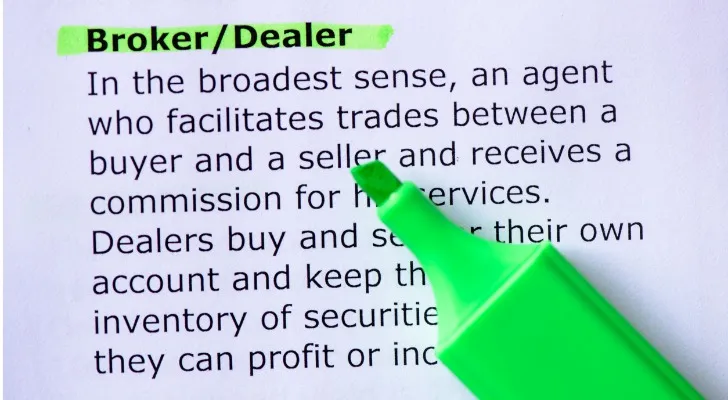In the world of finance and investment, custodians and broker-dealers play crucial roles in safeguarding and facilitating transactions. Understanding the roles and differences between these entities is important for financial advisors and their clients. While custodians and broker-dealers serve integral functions in the financial industry, they have distinct responsibilities and regulatory obligations.
Add new clients and AUM at your desired pace with SmartAsset’s Advisor Marketing Platform. Sign up for a free demo today.
What Is a Custodian?
A custodian is a financial institution responsible for holding and safeguarding client assets on behalf of an advisory firm. Custodians handle the custody of securities and cash, process trades, provide account statements and ensure assets are properly segregated and protected. For many independent advisory firms, the custodian serves as the operational backbone that supports day-to-day client account management.
Custodians do not provide investment advice or sell products directly to clients. Instead, they work behind the scenes to execute transactions based on instructions from the advisor and the client. This separation helps reinforce transparency and client protection, as the custodian’s role is focused on asset security and accurate recordkeeping.
In the RIA model, custodians are especially important because they enable advisors to operate independently without directly holding client assets. Advisors choose custodians based on factors such as technology integration, service quality, reporting tools and pricing. Understanding the custodian’s role helps clarify how assets are managed and protected within an advisory firm’s structure.

Client Acquisition Simplified: For RIAs
- Ideal for RIAs looking to scale.
- Validated referrals to help build your pipeline efficiently.
- Save time + optimize your close rate with high-touch, pre-built campaigns.

CFP®, CEO
Joe Anderson
Pure Financial Advisors
We have seen a remarkable return on investment and comparatively low client acquisition costs even as we’ve multiplied our spend over the years.
Pure Financial Advisors reports $1B in new AUM from SmartAsset investor referrals.
What Is a Broker-Dealer?

A broker-dealer is a firm or individual that buys and sells securities on behalf of clients or for its own account. In the financial advisory world, broker-dealers typically support advisors who earn commissions by recommending and executing transactions in investment products. They are regulated under securities laws and are responsible for supervising advisor activity, compliance and product offerings.
Unlike custodians, broker-dealers are directly involved in the distribution of financial products. Advisors affiliated with a broker-dealer may be limited to an approved product menu and must follow firm-specific sales and supervision requirements. Compensation is often transaction-based, though many broker-dealers also support fee-based accounts through hybrid models.
Broker-dealers play a central role in traditional brokerage and wirehouse environments. They provide infrastructure, compliance oversight and access to markets, but often in exchange for a higher level of control over how advisors operate. Understanding this role helps firms evaluate how broker-dealers differ from custodians in structure, incentives and client experience.
Build a Better RIA
Drive growth with automation, not headcount using the all-in-one advisor marketing platform.

Custodians vs. Broker-Dealers: Key Differences
Custodians and broker-dealers are distinct entities in the financial industry, each serving a unique purpose. As a result, there are several key differences to keep in mind. Beyond their primary functions, which are different, custodians and broker-dealers generally hold client assets in distinct ways. Broker-dealers pool client assets and hold them on their balance sheet, a practice known as holding assets in “street name.”
Custodians, on the other hand, segregate client assets and do not keep them on their balance sheets. This separation is a fundamental principle to ensure that client assets are protected in case of the custodian’s insolvency or other financial troubles. Custodians, meanwhile, generate revenue through fees charged for their custody and safekeeping services. Brokerages generate revenue through commissions, spreads and fees associated with executing trades.
Both custodians and broker-dealers are subject to regulatory oversight, but the specific regulations and compliance requirements may vary. While the Office of the Comptroller of the Currency (OCC) regulates bank custodians, broker-dealers typically register with the Securities and Exchange Commission (SEC) and fall under the direct oversight of the Financial Industry Regulatory Authority (FINRA), a self-regulatory organization (SRO).
Custodian vs. Broker-Dealer: Which to Use
In the decision-making process between a custodian and a broker-dealer, advisory firms should keep in mind factors like their transaction nature, investment objectives and necessity for safety.
A firm holding a large volume of high-value securities might consider a custodian for secure asset storage, while a firm involved in active trading would likely use a broker-dealer for their swift execution of trades.
No matter what you decide, you may find it difficult to find the time to acquire the client leads that you need to succeed. You may want to enlist the help of a lead generation service, amongst other benefits or time-saving solutions. SmartAsset’s Advisor Marketing Platform (AMP) offers financial advisors services like client lead generation, automated marketing and more. Learn about SmartAsset AMP today.
Can Clients Have Both?

Yes, clients can have both a custodian and a broker-dealer involved in their financial relationship, depending on the advisor’s business model. In hybrid practices, advisors may offer both fee-based advisory services and commission-based brokerage services. In these cases, client assets may be held with a custodian for advisory accounts while brokerage transactions are facilitated through a broker-dealer.
The key difference lies in the capacity in which the advisor is acting at any given time. When providing advisory services, the advisor typically works through an RIA with a custodian holding the assets. When executing brokerage transactions, the advisor operates under the supervision of a broker-dealer.
Clear disclosure is essential in these arrangements. Clients should understand which entity is involved, how the advisor is being compensated and what standards of care apply. When communicated transparently, having both structures can offer flexibility while maintaining clarity and trust.
Bottom Line
Understanding the difference between a custodian and a broker-dealer helps advisory firms clarify how client assets are held, managed and overseen. Custodians focus on safeguarding assets and supporting advisory relationships, while broker-dealers facilitate securities transactions and supervise commission-based activity. For firms and clients alike, knowing how these roles differ, and when both may be involved, supports transparency, compliance and informed decision-making.
Tips for Growing Your Financial Advisory Business
- Regardless of how you manage your client assets, you may always need more time for activities like marketing. SmartAsset AMP (Advisor Marketing Platform) is a holistic marketing service financial advisors can use for client lead generation and automated marketing. Sign up for a free demo to explore how SmartAsset AMP can help you expand your practice’s marketing operation. Get started today.
- Artificial intelligence may be able to help you deliver better services to your clients, and potentially, scale your business. A recent SmartAsset survey found that 57% of advisors are already using ChatGPT or are interested in testing it out.
Photo credit: ©iStock.com/Liubomyr Vorona, ©iStock.com/Sohel_Parvez_Haque, ©iStock.com/VioletaStoimenova
